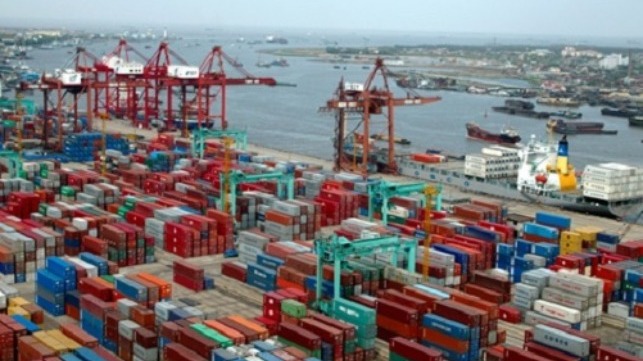
BY THE MARITIME EXECUTIVE 10-13-2020 05:59:17
With the continued focus on facilitating crew changes and renewed calls to address the problems of crew welfare during the pandemic, China has become the latest country to open its ports to foreign seafarers. Shipping companies and seafarers will be subjected to strict protocols, but it is seen as an important step that will aid seafarers who have been forced to remain aboard ships or at home during the pandemic.
According to details released by BIMCO and the shipping agency company GAC, a total of 10 Chinese ports – Dalian, Tianjin, Qingdao, Shanghai, Ningbo, Fuzhou, Xiamen, Guangzhou, Shenzhen, and Haikou – are beginning to allow foreign crews to land both for changes and in limited circumstances crew recreation. It is BIMCO’s understanding that the various Chinese ports may take different pragmatic approaches when dealing with a foreign crew change. As such, BIMCO recommends that members planning to conduct crew changes in China consult their local agents for the latest requirements implemented by the port in question.
BIMCO is also reporting that the protocol incorporates a unique “quarantine circuit-breaker mechanism,” designed to both ensure compliance with the rules and a process to suspend crew changes if an outbreak is associated with a shipping company. According to BIMCO, a shipping company’s foreign crew change operations will be suspended for 15 days if there are five positive tests among the crew or suspended for 30 days if 10 positive cases in aggregate are found aboard a ship. If more than 10 tested positive cases are found, the shipping company will not be allowed to operate until they pass a new assessment conducted by the relevant authorities.
GAC’s Shanghai office published the protocols which are specific to the port but also an example of China’s overall approach for foreign crews. Shanghai says it is open for crew with expiring contracts advising the shipping company or agents to prepare and present a plan to authorities in advance. China’s rules cover crews that have been at sea for at least 14 days and ships that have not had crew changes for at least 14 days.
Signing off crew members need to complete health reports and if everything is reported as normal local customs will inspect the ship when it arrives in port. Crew members will go through health screenings, including COVID-19 tests, and if negative should proceed directly to the airport via a car, not public transportation.
Ships are instructed to wait at anchor until the international flights depart, however, if the ship is on a tight schedule local authorities can approve its departure. Signing off crew must have been transferred into an isolation place to wait for their flights.
Signing on crew must also go through a health screening and report that they have been in good health for at least 14 days. Also, the agents are instructed to make arrangements so that the crew after arrival is transferred via car directly to the ship not staying in the city.
Another interesting provision says if the ship is to stay in Shanghai for more than 14 days, and the crew is inspected and found to be negative, then can go ashore for rest. They are required to stay in the local district where the ship is located but shore leave can be arranged.
News of China’s decision to permit crew changes has been welcomed by the shipping industry. Executives have reported that with the cooperation of local authorities they have been able to reduce the number of crew overdue for a change. Hapag-Lloyd’s CEO Rolf Habben Jansen recently told media during a briefing that the company had been able to bring down the number of overdue crew. He warned, “We are not out of the woods,” but said it has been brought down to a manageable number.
source: www.maritime-executive.com


